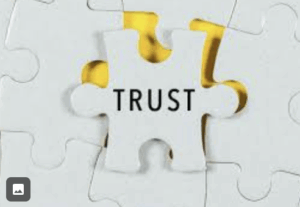Borderline Personality Disorder (BPD) is a complex mental health condition characterized by intense emotional dysregulation, unstable relationships, and impulsive behavior. While it is often associated with women due to diagnostic biases, men also experience BPD, though it may manifest differently and often goes underdiagnosed. Recognizing the signs of BPD in men is crucial to fostering understanding, reducing stigma, and encouraging treatment.
What Is Borderline Personality Disorder?
BPD is a personality disorder marked by:
- Emotional Instability: Rapid mood swings and difficulty regulating emotions.
- Relationship Challenges: Patterns of intense, unstable relationships.
- Impulsive Behaviors: Risk-taking actions, often without considering consequences.
- Fear of Abandonment: An overwhelming fear of rejection or being left alone.
How Does BPD Present in Men?
Men with BPD may exhibit symptoms differently than women due to social and cultural influences. Here’s how it often manifests:
1. Increased Aggression and Anger
- While women with BPD may externalize their emotions as sadness or guilt, men are more likely to display anger and aggression.
- This can result in conflicts at work, with friends, or in romantic relationships.
2. Substance Abuse and Risk-Taking Behaviors
- Men with BPD are more prone to engage in impulsive behaviors such as substance abuse, reckless driving, or gambling.
- These behaviors are often coping mechanisms for emotional pain or instability.
3. Difficulty Expressing Vulnerability
- Due to societal expectations around masculinity, men with BPD may struggle to articulate their emotions, leading to frustration or avoidance of interpersonal issues.
- They may suppress feelings of insecurity or fear, which can exacerbate symptoms over time.
4. Intense Fear of Abandonment
- Men with BPD may experience a profound fear of rejection but express it through jealousy, control, or possessiveness rather than openly admitting these fears.
- This can lead to strained or toxic relationship dynamics.
Challenges in Diagnosis and Treatment
BPD in men often goes underdiagnosed or misdiagnosed as other conditions, such as:
- Antisocial Personality Disorder (ASPD): Due to overlapping symptoms like impulsivity and aggression.
- Substance Use Disorder: Symptoms of addiction may overshadow underlying emotional struggles.
- Depression or Anxiety: Co-occurring conditions may obscure the diagnosis of BPD.
This underdiagnosis stems from stigma and a lack of awareness about how BPD differs in men.
How to Support Men with BPD
- Encourage Professional Help
- Men with BPD can benefit from evidence-based treatments like Dialectical Behavior Therapy (DBT), which teaches emotional regulation, distress tolerance, and interpersonal skills.
- Explore Individual Psychotherapy for personalized support.
- Provide a Judgment-Free Environment
- Create a safe space where they feel comfortable discussing their feelings and fears without criticism.
- Educate Yourself and Others
- Understanding the nuances of BPD in men can help reduce stigma and foster empathy.
- Set Boundaries
- While offering support, it’s important to maintain healthy boundaries to ensure both parties’ emotional well-being.
Moving Forward
Borderline Personality Disorder in men is often misunderstood and overlooked, but with the right support and treatment, individuals can lead fulfilling lives. At Kingston & Co Counseling, we’re committed to providing compassionate care tailored to your unique needs. Contact us today to explore our services, including Couples Therapy for relationship challenges or Family Therapy to foster understanding within families.
For more mental health insights, visit our Blog Page. Together, we can help destigmatize mental health and create a path toward healing.







